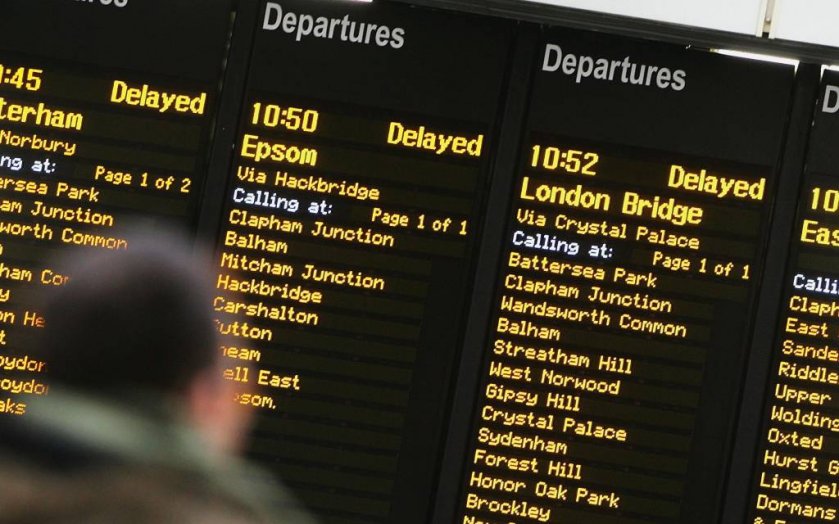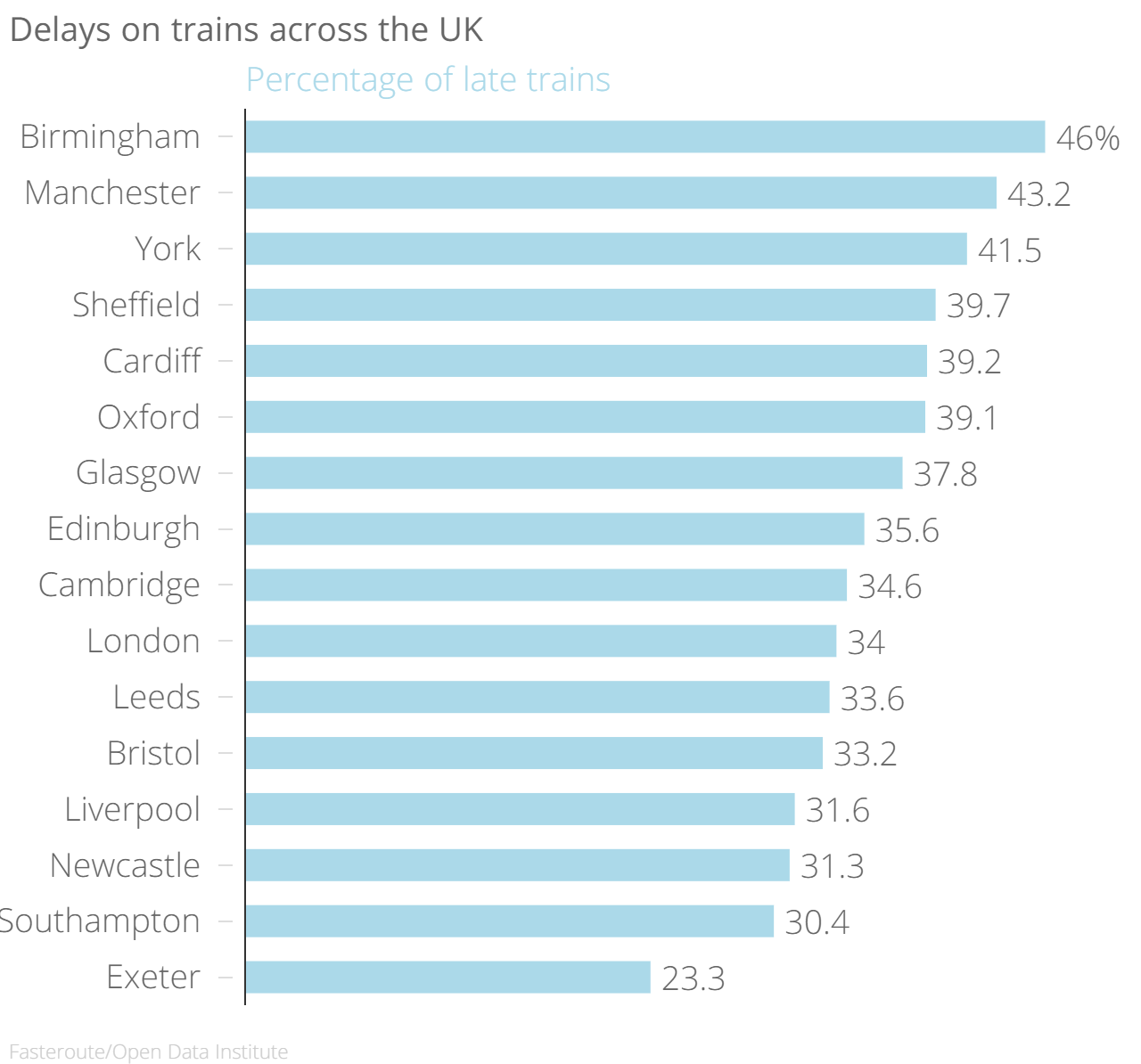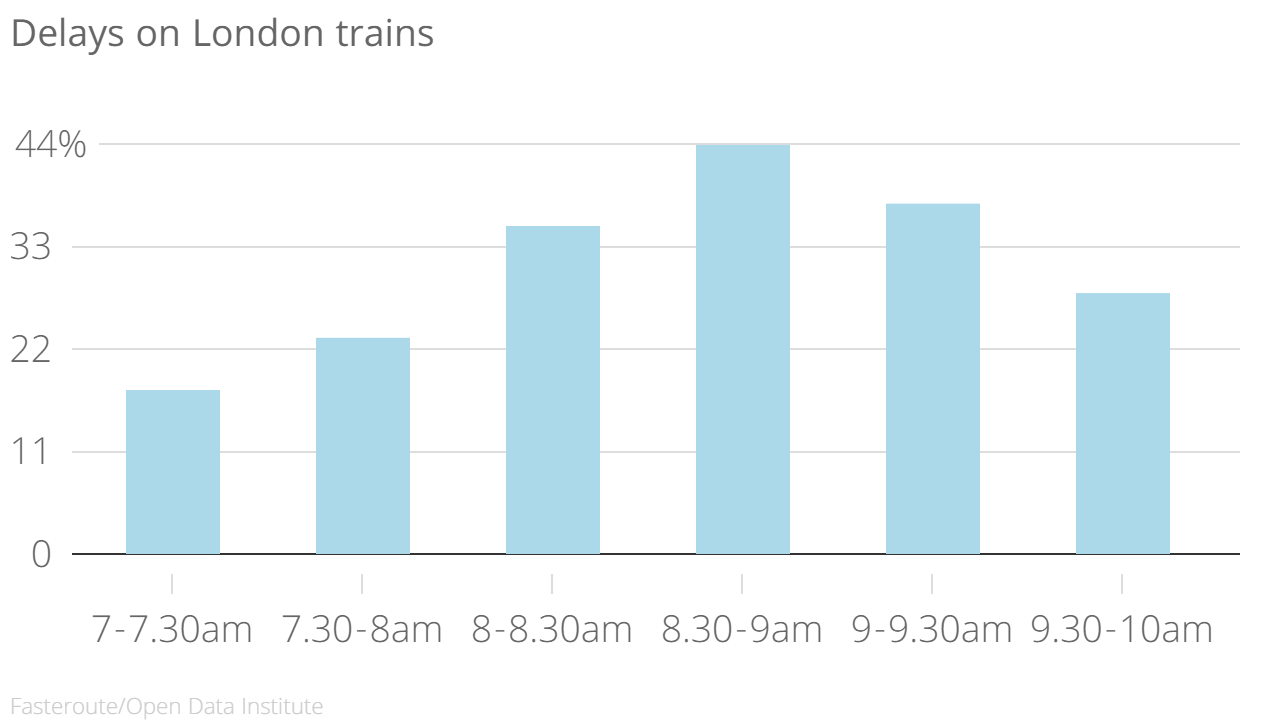A third of London trains fail to run on time

More than a third of trains into London during the morning rush hour fail to run on time, while nearly half of those arriving between 8.30am and 9am are delayed.
However, trains running in nine other cities across the country suffer more delays than those in the capital, new data reveals, with Birmingham, Manchester and York experiencing delays on more than 40 per cent of services throughout the morning.
Read more: Are you travelling through the UK's busiest station?
For the first time the figures on delays, collected by Fasteroute and the Open Data Institute (ODI), include details of any delays of more than a minute, compared to official figures which only count those delayed more than five minutes on commuter routes and 10 minutes on long distance services.

Fasteroute uses public data to analyse every journey across the country, collating real-time information so that anyone can check the punctuality of their train over time.
The analysis found that the earlier we travel the less likely we are to be delayed, with earlier delays creating a knock on effect on later services.
Between 8.30am and 9am a total of 12 hours of delays a year are created, compared to 11 hours between 9am and 9.30am and nine from 8am to 8.30am. Those travelling between 7.30am and 8am face fewer delays, totaling just six hours a day – half that at peak time – while passengers making a journey between 7am and 7.30am suffered the least delays – just five hours a year.

The data suggests that many commuters would benefit from flexible working and being able to catch an earlier or later train, optimising their commute.
“Train delays are inevitable, and our existing rail infrastructure routinely runs at capacity. While city planners develop transport services for a growing population, the Fasteroute team has demonstrated how historical analysis of real-time open data could bring about more efficient commuting and a more even demand on current train services," said the ODI's technical director and deputy chief executive Jeni Tennison.
Read more: These cities commute furthest by cycling and running
"Bringing this open data closer to the public will inform their daily decision-making, and can in turn, reduce overall delays of services already in operation."
She also urged train companies to become more transparent and make more data available so that commuters can improve their journey.
“If passenger numbers per train were available as open data we could analyse the overall effects of late train services. This data is not currently available. We urge operators to publish passenger numbers to increase transparency about the impact of delays and monitor whether bringing this data to passengers does influence their commuting behaviour.”